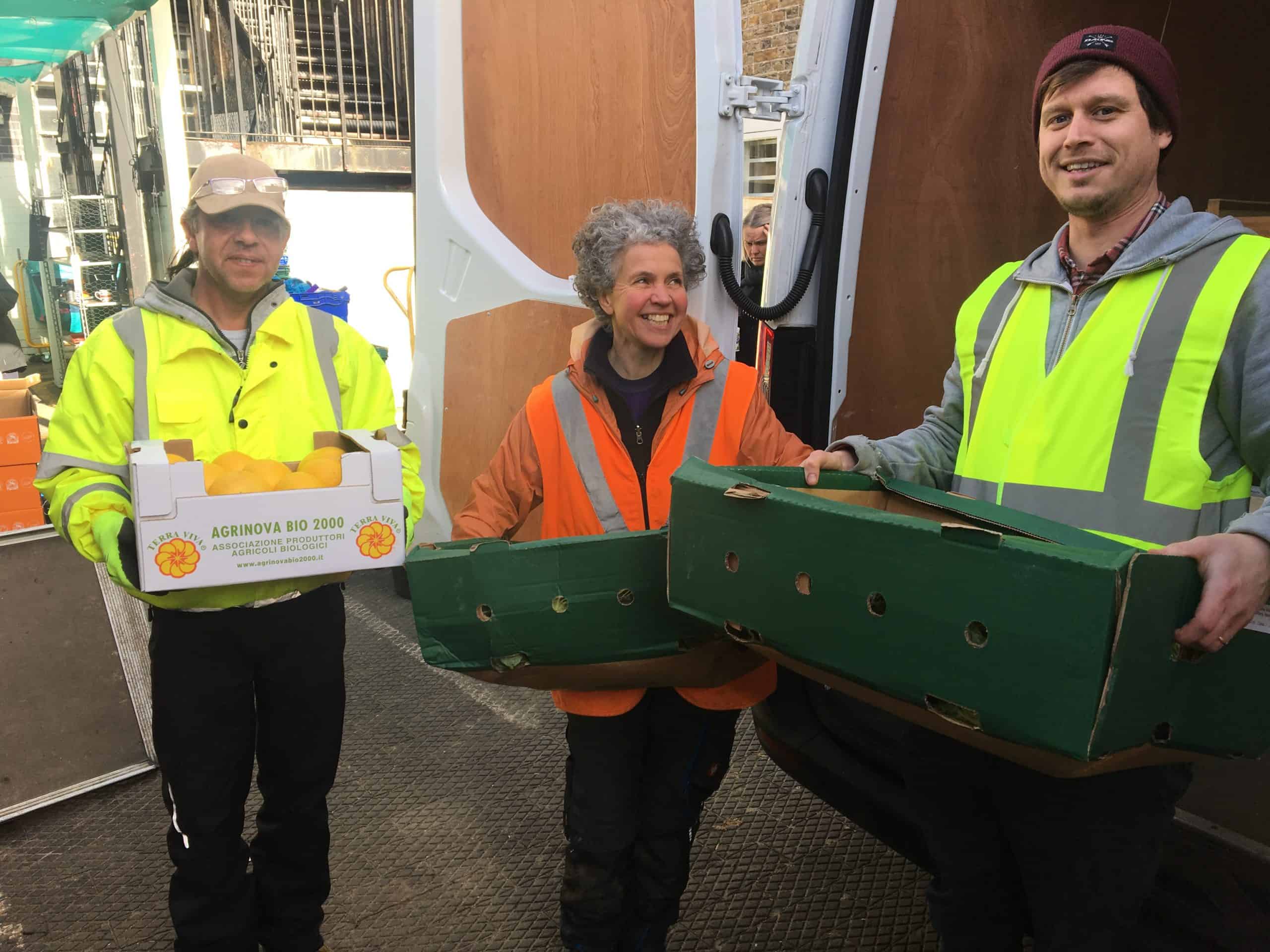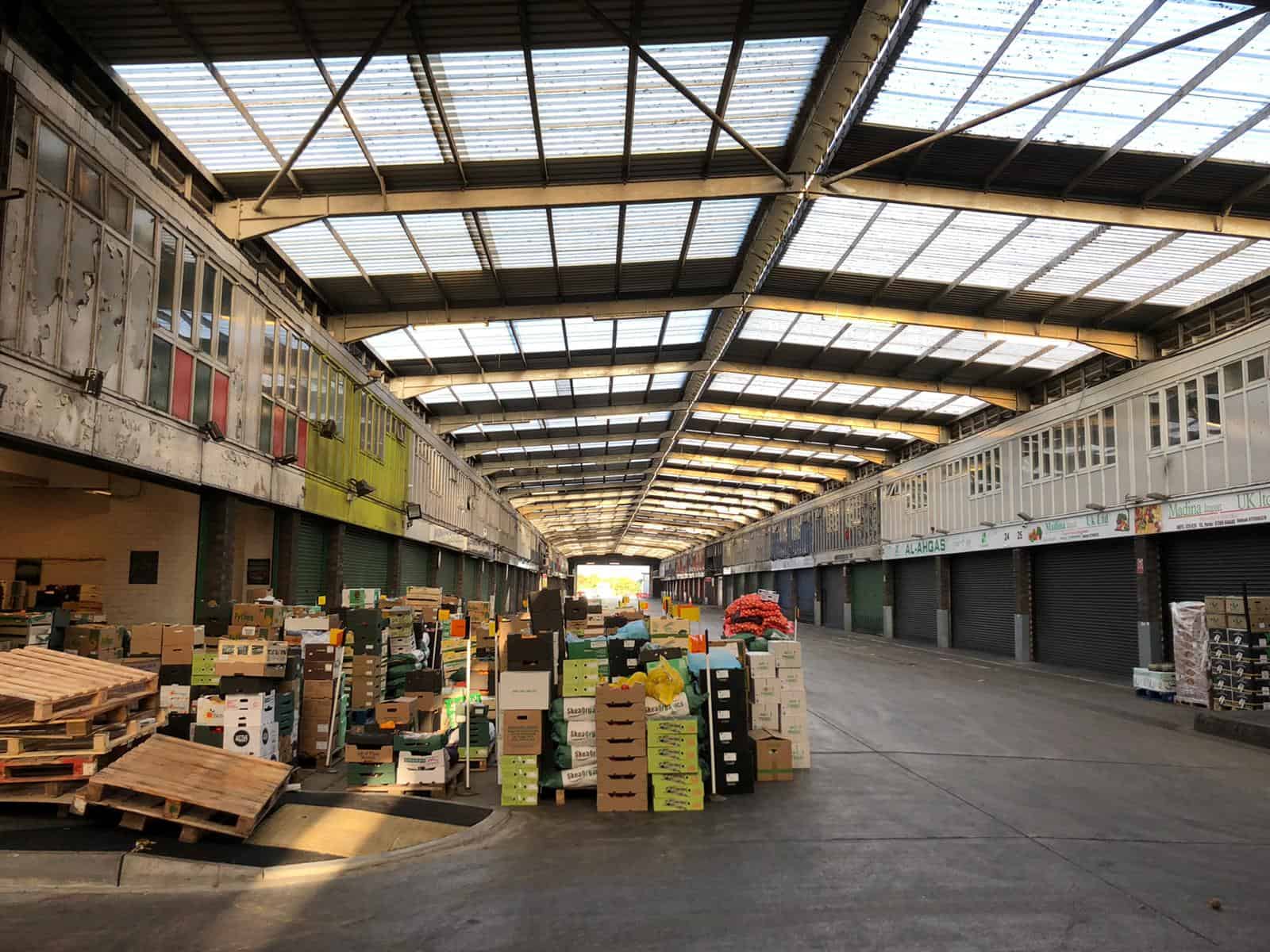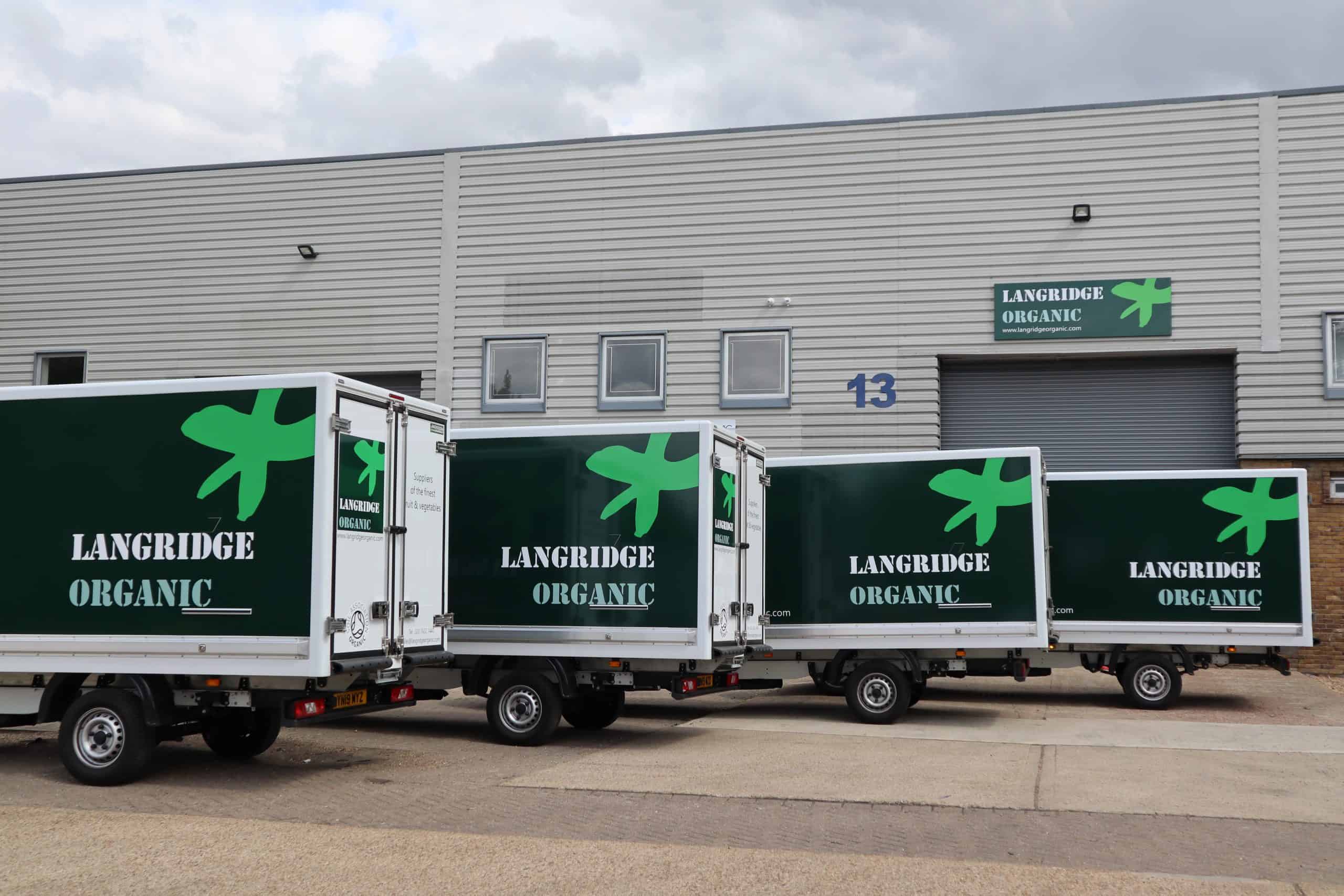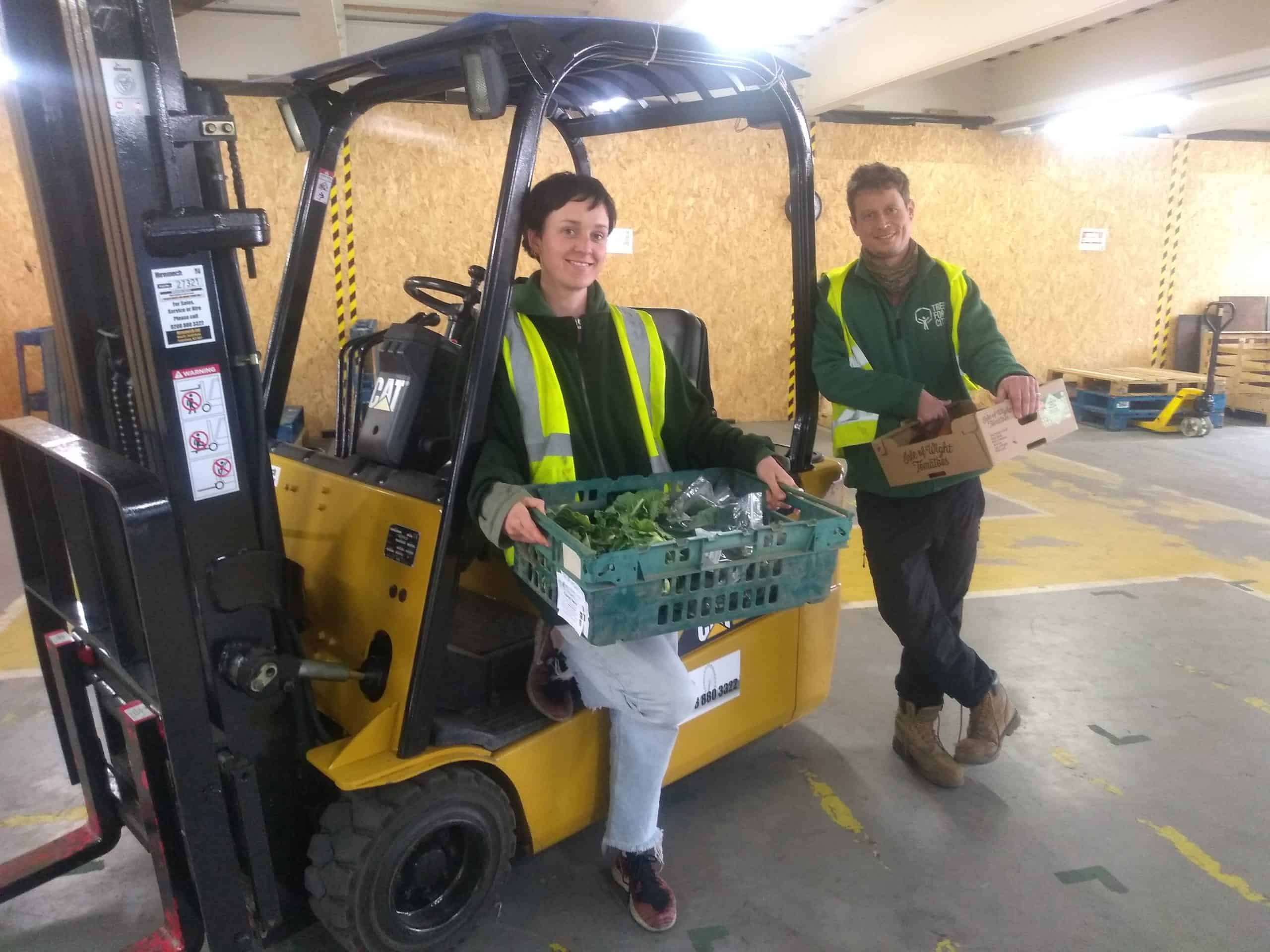
Transparency is a word that seems to be frequently floating around these days. It’s often in response to the many layers of wool over our eyes about how our food is produced and how it reaches us – eaters – the end of the food supply chain. I know I feel resistant to removing that wool. There’s just too much to think about – human rights, soil health, biodiversity, climate impacts, transport emissions, habitat destruction. How much do I really want to know? How much do I need to know to make an informed decision? How much transparency is enough? What should we be asking of wholesalers?
When we’re talking about food, in our ‘local’, ‘organic’ or ‘agroecological’ sector, there has long been an assumption that food directly sourced from the farmer, or better still, grown ourselves, is best. Lots of stories are told that highlight the rural (or in some cases, urban) grower, with bucolic pictures of seedlings emerging, crops being picked, farm workers smiling as they bring boxes of carrots/squash/apples down a beautifully weeded aisle. At Better Food Traders we use those images to showcase the growers of the fruit and veg sold by our members. Supermarkets, however, have been rightly criticized for their use of ‘fresh farm’ greenwashing to cover up the rather more industrial realities of the farms that they own or are supplied by, where rock bottom production cost (I’m not going to say value) is seen as an essential component of business efficiency.
As project leader of Better Food Traders, I want to make sure that our organization is being transparent. To me that means giving you, the reader, and maybe the customer of one of our amazing member businesses, the unvarnished truth. We need to make sure that we include stories about the less lovely-looking, but equally meaningful and critical, links in the supply chains that bring us our food.
In the UK, most of us live in cities – 83% of the population. It strikes me that until there is a re-ruralisation of the population, the vast majority of us are unlikely to be buying our food directly from farmers, because farmers and farms are mostly rural. How can we city-dwellers most effectively support our farmers to provide healthy soils, nature-friendly and diverse habitats, climate remediation, decent jobs and clean air? Are there enough people who are able to buy directly from farms, to create the tipping point of support needed for organic and agroecological farming to become the main source of food in the UK? And, possibly more to the point, do farmers, busy growing food for increasing numbers of customers, have enough time and inclination to manage all those direct sales to individuals? I propose that direct sales can and patently do work for some farmers, but are unlikely to become the main route to market – the overwhelmingly urban market – for most in the UK. This is why, at Better Food Traders, we are all about aggregation of demand via retail, and, yes, all of our retailers use (certified organic) wholesalers to further aggregate demand too.
I’ve recently been alerted to a phrase that is used to describe part of our food supply chain here in the UK – the ‘missing middle’. (Thank you Bella from the Food Research Collaboration at City University). My first take on the missing middle in the local, small scale, alternative to mainstream, food sector, was that we were talking about the retailer. Ah, I thought to myself, that’s where Better Food Traders comes in – recognizing the retailer is why we exist. Everyone forgets the retailer – just think of the term ‘farm-to-fork’. It’s almost as if that carrot leapt from the field straight onto a plate. But thinking further, I’ve realised that I want to draw your attention to more of that missing middle. Yes, the retailer plays a pivotal part in looking both ways in the food chain – to farmer and to customer – but the wholesaler’s story is another crucial one that is seldom told.

I’ll start with our very own Better Food Shed (the Shed). Growing Communities developed this operation as a new kind of wholesale business to support the growth of small-scale local food systems – there are now 10+ community-led, organic schemes operating within the M25.
Supply predominantly comes from small, organic farms within 100 miles of London, such as Sarah Green Organics in Essex and Ripple Farm in Kent. Delivering direct requires scale and a minimum order size so this option is not viable for smaller box schemes with small orders or for smaller producers who have less to sell. The Shed solves this problem by reducing the cost and carbon of the distribution conundrum, providing a hub in Barking – on London’s fringe – where the farmers deliver all their London orders. For the veg schemes, it helps them all compete with larger businesses by pooling orders, thus giving greater buying power. As a not-for-profit organisation, the Better Food Shed is committed to putting farmers and growers ahead of profit. It’s also committed to supporting small businesses run in an ecologically sound way and to help build a more sustainable food system.
Danny Fisher from the Shed agrees that the business is primarily about being farmer-focussed, a term describing giving farmers proper support so that they can thrive and treat the land and their workforce with the respect they deserve. Metske van der Laan, a Shed supplier from Bore Place in Kent, bears this out: “It is a joy to supply and trade with people who are in it for the right reasons, locally produced, respect for nature and the people who work the land. I hope I can pay this back with good quality vegetables for years to come… The ethos of the Better Food Shed guarantees me and my employees an honest price for our produce… I hope to grow organic veg for many more years. Although no farming practise is 100% sustainable, every acre farmed organic is a step away from a destructive farming practises that are all about quantity and profit for some. I hope and see that our way of farming and trading is about quality and profit for all!”

Outside London, some Better Food Traders use the wholesaler, Organic North, based in Manchester. I contacted Sean Ruffell, the MD, about the benefits to farmers of selling produce via Organic North. He outlined 11 important reasons for farmers to sell to farmer-focussed wholesalers:
- huge simplification of logistics, carbon and costs by delivering a bulk order to one place rather than multiple smaller deliveries;
- their zero waste system where produce is bought to order;
- helping farmers sell what they have if they have an excess, rather than dictating what farmers should supply;
- letting farmers set the price without negotiation;
- transparency about which farms are supplying which produce so reputations can build;
- marketing assistance via videos of the farms promoted on social media;
- prompt payments – within a week of receiving produce(shockingly, this is uncommon practice);
- maintaining long-term, loyal relationships;
- keeping growers informed about where their produce ends up – supply chain information is appreciated both ways;
- provision of instant sales for new growers – we’ll take everything they can produce in the interests of building the market for both them and us.
Sean emphasised the importance of the role of traditional wholesaling in the bigger supply chain picture.
“We very much enjoy working closely with our many growers and producers, but since we began, we have maintained a close relationship too with our European wholesale partners and value these businesses just the same. Experience has taught us that the organic landscape in this country remains relatively small, delicately balanced and thus can change very quickly. Over the years we have seen many farms, initiatives, wholesalers and indie providers of veg, all with the best of intentions and ambitions very quickly sometimes come and go. We’re very appreciative of the way in which through it all, our brilliant and extremely reputable wholesaler partners have enfranchised us and the businesses that we supply to establish an organic market in the North of England/Scotland from scratch over the last 25yrs. Veg growing being the vocational rural gig that it largely is, for us, wholesalers both home and abroad have acted as a crucial and necessary bridge to farmers finding a route to market and we don’t think that this should be at all overlooked.”
Removing the wholesaler from the food narrative and making a prettier impression by presenting a picture of buying directly from the farms that wholesalers so closely work with, Sean feels, is dishonest and undermining of the pivotal role of wholesalers within the supply chain.

Alex Pearce from Langridge Organic manages another large wholesale operation, run from Middlesex and again, certified organic by the Soil Association. Alex downplays the wholesaler role claiming that it’s the farmers who do the hardest work – growing the veg – so he doesn’t mind too much about being invisible when the retailer focusses on farms in telling food provenance stories. When I asked about transparency and how he ensures Langridges’ values don’t get watered down, he told me that,
“For most of our suppliers, both in the UK and further afield, I’m confident that the relationships we have built up over the years mean that we can see when a supplier is genuinely passionate about organics, ethical practice and the like. We operate direct relationships with farmer co-ops in Sicily, Italy, France, Holland, and with wholesale suppliers in some of those countries too. For produce from Spain, where recent labour abuses have been spotlighted, as well as buying direct from growers we also work with some French Wholesalers based in Perpignan, France – one of the European centres for buying and selling fresh produce from the South to the North of Europe. We then rely on their knowledge of their growers to make sure that their values and principles are aligned with ours. We’re keen to ask them some challenging questions, and to let them know that our customers are asking those questions of us. The thing is, we need to get clear about what the right questions to ask actually are.”
Alex and I discussed the Ethical Consumer(EC) campaign about working conditions in some farms in the South of Spain, and we had a look at the demands EC are making to supermarkets about their supply chains. It was clear to Alex that some of the demands, such as publishing details of suppliers all the way back to farms, in the case of independent wholesalers, jeopardises sensitive business information. It isn’t straightforward for a business to make those details public, and when that relationship is mediated by a secondary middle-person, it’s not so easy to demand either. So, if we want to carry on eating Spanish oranges with a clear conscience, what do we do? Alex isn’t shying away from the issue.
“We wholesalers, need to ask our suppliers more about how well they know their farmers, and how well they trust that their workers are well-treated. And we need to focus on what farm workers want, not what we think they need. For example, a supermarket ‘inspector’ might require that farm-worker accommodation allows no more than four people sharing a room, resulting in potentially higher rent. The workers may be more than happy to share the room with say five others if it means lower rent. We need to achieve a balanced approach, in consultation with workers, and without being there on the ground, it’s hard to really know what that balance looks like.”
Alex strongly agreed that labour rights abuses should be exposed and stopped and wants to actively use his supply chain to play a part, by asking challenging questions at every link in that chain. In answer to the question of whether conditions are better or the same on organic farms, Alex tells me that most organic production certifications don’t address worker ethics, despite work he was part of over 10 years ago, to incorporate a ‘fair trade’ aspect to the organic certification standards.
Both Alex and Sean pointed out that a fundamental principle lying outside the remit of organic certification of wholesalers and retailers, is that of paying the farmer promptly. It has often been the case that farmers might have their payments from big business customers delayed, and sometimes unpaid altogether. Alex has previously argued for the inclusion of payment ethics into organic certification criteria (it didn’t happen) and like Sean from ON is passionate about the need to pay the farmer in a timely manner. It might appear that prompt payment should go without saying for any trading relationship, but it seems not in the fresh food farming sector.
Alex wants Langridge Organics to help the Better Food Trader businesses be transparent about where their EU produce comes from. He is making sure produce comes from suppliers he can vouch for, and if more information is needed, he wants to ask challenging questions. And Sean is interested in Organic North helping Better Food Traders illuminate the bigger picture of the organic food supply chain in the UK. Danny at the Shed is working with Better Food Traders to develop a code of values for ethical wholesalers and their suppliers to sign up to. They are all willing to work together with Better Food Traders to create a louder voice calling for better standards – and transparency – all along the supply chain.
